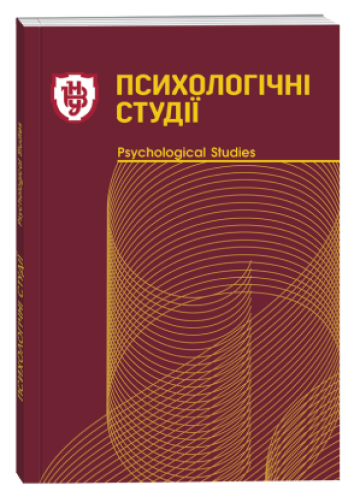РSYCHOLOGICAL FOUNDATIONS OF COLLECTIVE ATTITUDES IN THE ARMED FORCES OF UKRAINE
DOI:
https://doi.org/10.32782/psych.studies/2023.2.5Keywords:
Armed Forces of Ukraine, servicemen, collective mood, collective thought, communicative culture.Abstract
Small social groups operating in the Armed Forces of Ukraine are subject to the general laws of group development and become collective only after reaching a certain level of development. A military collective is a highly organized, small community of servicemen that has reached a high level of development, is designed to protect the Motherland, and is characterized by cohesion, a developed collective psychology and the ability to resist various internal and external negative influences. A collective mood is a shared experience of certain events, factors, and similar emotional states that dominate the entire team for a certain period of time and affect its life and activities. Collective opinion is also an important concept in this aspect. Collective opinion is a collective evaluation that expresses the attitude of the team to various events and phenomena in the life of society, the Armed Forces, unity, behavior, actions of each person who is part of it. The collective mood, which is influenced by collective thought, can be sthenic and asthenic. A sthenic state of the psyche activates military actions, an asthenic state of the psyche reduces the unity of the collective, stops actions. Collective attitudes in the Armed Forces of Ukraine are important for maintaining the morale of soldiers and the effectiveness of their work. There are several psychological principles that contribute to the formation and maintenance of a positive collective mood in the Armed Forces of Ukraine: leadership; communication; social support; professional training; recognition and praise; development of a positive corporate culture. Taking into account the current situation, when Ukraine is in a state of hostilities, the problem of raising collective sentiments becomes even more urgent and expedient. After all, the loss of a command unit at a critical moment can lead to significant negative consequences (panic, uncontrolled fear). The mood of each individual warrior may depend on such factors as physical condition and well-being. Whereas in the formation of a collective mood, these aspects take a back seat. Social factors are becoming more important. Collective mood is a mass phenomenon, subject to socio-psychological regularities.
References
Бондарев Г.В. Основи військової психології : навчальний посібник. Харків. нац. ун-т внутр. справ. Харків, 2020. 272 с.
Волков Д., Абатурова О. Особливості просоціальної поведінки військовослужбовців. Grail of Science. 2022. № 12–13. С. 592–597. 3. Кокун О.М. Забезпечення психологічної стійкості військовослужбовців в умовах бойових дій : методичний посібник. Київ–Одеса : Фенікс, 2022. 128 с.
Кондратюк М.П., Поух А.В. Методика роботи з гуманітарних питань у військових підрозділах : навчально-методичний посібник. Дніпро. 2014. 129 с.
Тарасенко С.М. Формування фахової комунікативної культури курсантів військових інститутів у процесі навчання дисциплін гуманітарного циклу : дис. … на здобуття наук. ступеня канд. пед. наук : спец. : 13.00.04. Житомир, 2013. 240 с.
Фука М.М. Захист Вітчизни. Профільний рівень : підручник для 11 класу закладів загальної середньої освіти. Тернопіль : Астон, 2019. 328 с.
Ягупов В.В. Військова психологія : підручник для студентів вищих навчальних закладів. Київ : ВК ТОВ «Тандем». 2004. 656 с.







